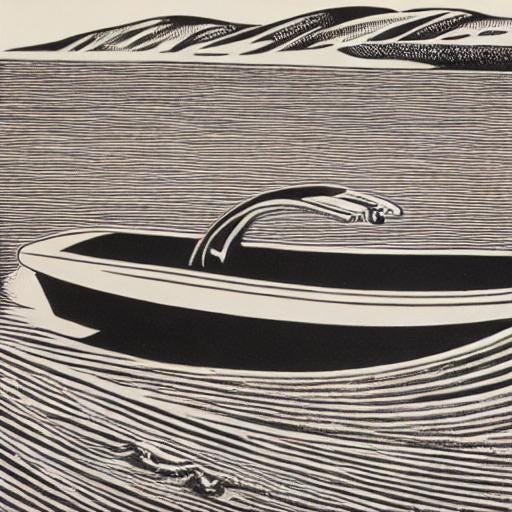It’s finally happened. I made a plan to read something and talk about it here, and I’ve concluded that I just shouldn’t do it. Why? Because the book was bad. No matter how hard I tried to find some angle where I could talk about it without being a jerk, I just couldn’t do it.
And I very much don’t want to be a jerk. In fact, one of my ways for being this year is to be gracious. Writing about how flawed some independent author’s book is wouldn’t be gracious. Not while naming them. So I’ve shelved the book and am now trying to figure out what to do. We’ve got deadlines, after all.
What’s frustrating is that this book should have been right up my alley. It was dripping in folk horror. It was even part of the weird little emerging sub-genre I’ve been thinking about for a while but still can’t quite articulate in the way I want to yet. I’ve been desperately searching out examples so I can write up a cohesive What It Is and Where It’s Going post about it. Alas.
But maybe all is not lost.
Looking at things that aren’t working can be just as instructive, if not more-so, than things that are working. It’s in the bad writing that we can really see how a story grinds to halt, jerks forward, doesn’t quite land. Good writing can make all this look effortless. Like there isn’t much to it: putting words on the page and telling a compelling story. Anyone can do it, and if you’re working hard, then maybe you’re going about it all wrong.
There were two big things that didn’t work in this novella that sunk it. The first was the constant foray into detail about things that didn’t impact the story. The author clearly had a lot of background knowledge on a subject, made it a central passion of his protagonist, and then kept getting lost in minutia about it. Stuff that I didn’t care about, and ended up having no bearing on the story whatsoever. It was wordcount filler. It was a way to say ‘look at all this stuff I know about this thing, aren’t you impressed?’
The second major problem was the lack of scene-craft and flow. Scenes didn’t have a focus, or even an intent, and they crashed into each other like dissonant sound waves. Something would happen, and then something else would happen, but they didn’t seem connected other than the characters were the same and the basic plot was involved.
When you’re reading good fiction, it can sometimes feel like you’re on a speedboat, skipping along on top of the waves. Those waves have a rhythm and you’re coasting along with it. This felt like trying to ride a bicycle through mud. Occasionally I’d get purchase, but then I’d hit a rock that would kick my wheel out in a direction I didn’t mean to go.
These two problems are devastating to any story, and put together they leave an incoherent and unsatisfying narrative for your audience. I could tell you the plot of this whole novella, laying out what happened first, second, etc. The sequence makes logical sense. But on execution, there was no why connecting them together, and no core emotional truth to make any of it matter.
Scene, sequence, flow, core emotional truth. These aren’t things I’ve thought about consciously in a very long time. In well-written fiction, they wash over you in such a way that they’re easy to miss. They become almost invisible. But when they’re missing or executed awkwardly, it’s painful.
The good that’s come from this is it’s made me revisit these fundamentals. It’s forced me to think about them again in a deliberate way. Last month, I finished the draft of my Fame Monster project and I’m gearing up to re-outline it and start the rewrite. I believe that reading this poorly written novella is going to make that rewrite stronger, because now I’m remembering all this stuff I learned decades ago. I’m thinking about it all again, and that’s going to make my own work stronger.
In conclusion: Read bad books. They’ll remind you of the work you need to do.






I feel this way about bad film, too. You can learn so much about what works and is usually invisible craft when you're confronted with something that isn't working.
I struggle to finish books I don't jive with immediately, but I agree there is something to be learned in the finishing! Also, I am taking this to heart as a writer as well. I need to do LOTS of bad writing myself, and will most likely publish a lot of it, before I create something fantastic.